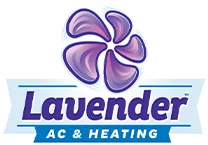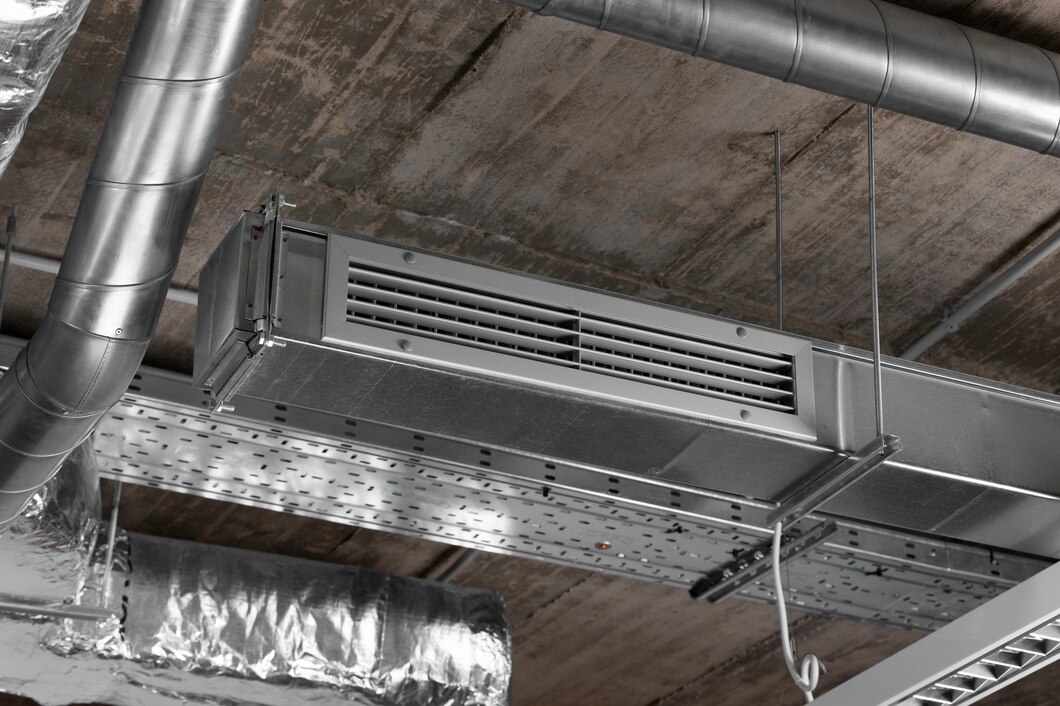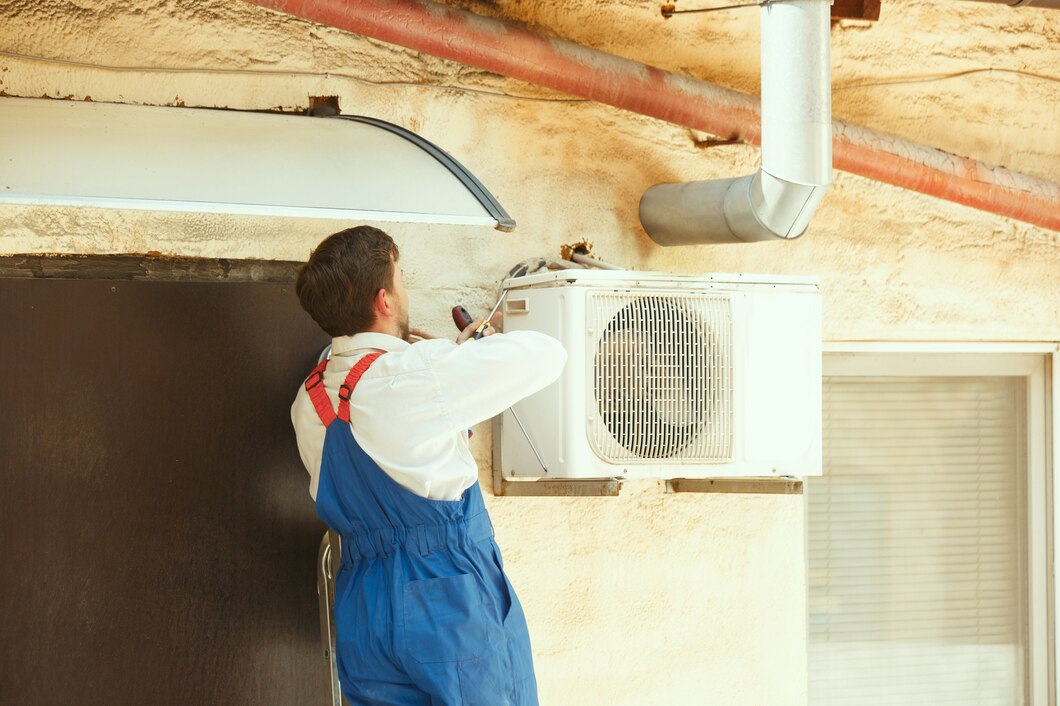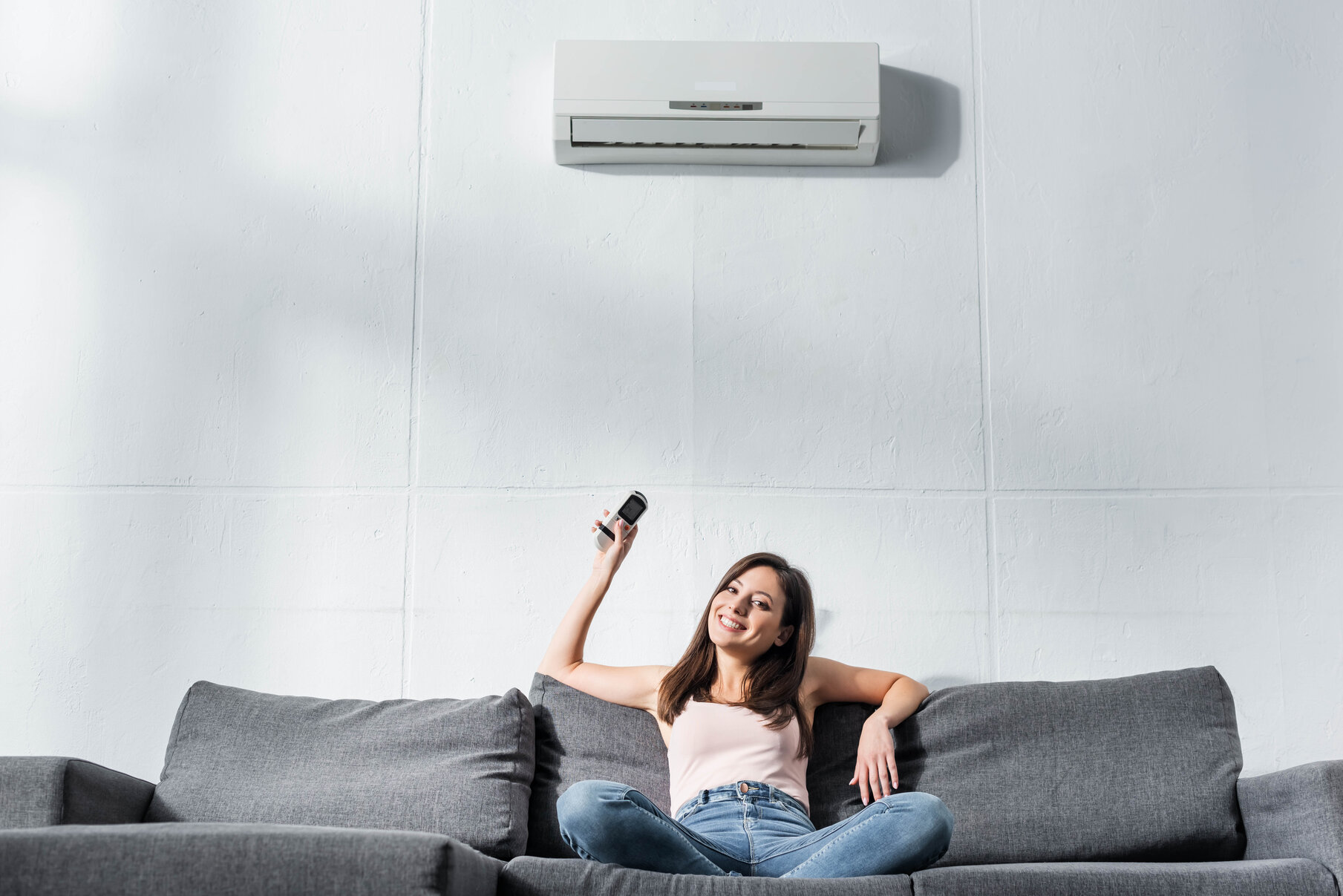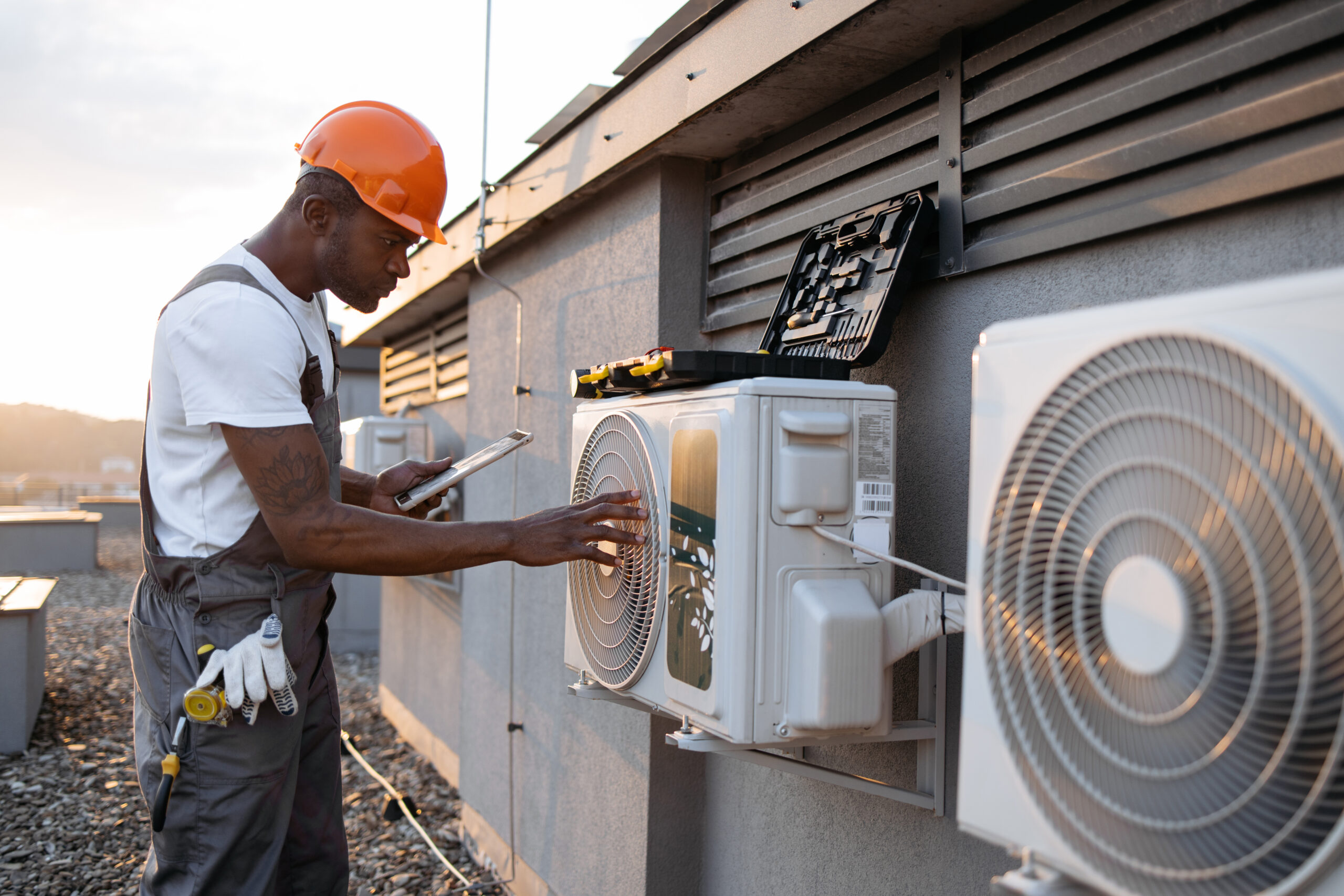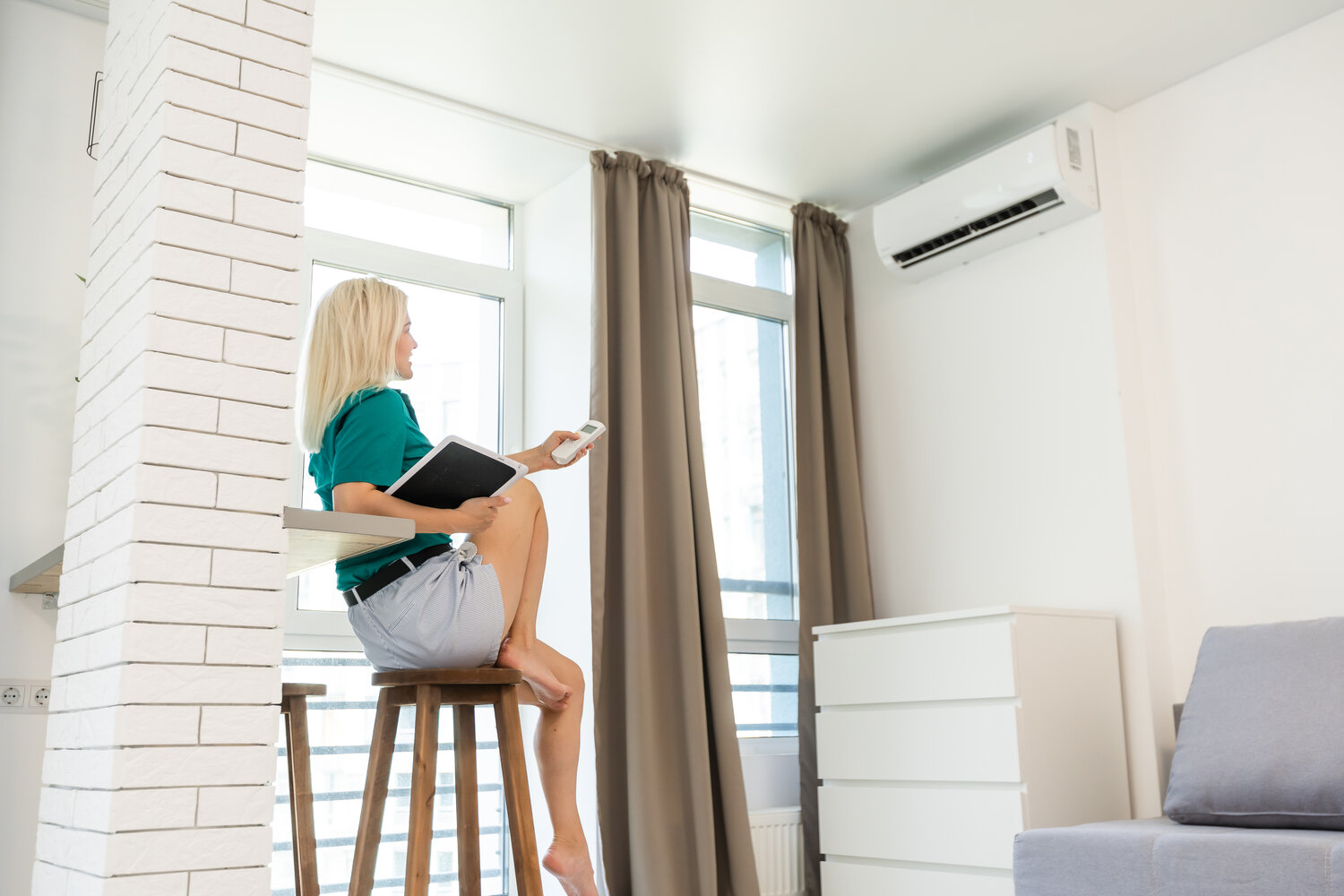The importance of good indoor air quality cannot be overstated, as it significantly contributes to creating a healthy and comfortable living environment. A crucial component of maintaining optimal indoor air quality is having an efficient ventilation system. Proper ventilation allows for the continuous exchange of indoor air with fresh outdoor air, diluting and removing pollutants, odors, and excessive humidity, thereby improving the overall quality of your home’s indoor environment.
We at Lavender AC & Heating are dedicated to helping homeowners like you ensure healthy and comfortable indoor environments by offering professional air conditioning and heating services, including ventilation solutions tailored to your specific needs. With years of experience and a customer-centric approach, our team of skilled professionals will guide you through the process of understanding, selecting, and implementing the best ventilation solution for your home. Join us in exploring the world of ventilation systems and learn how a well-designed and efficiently maintained ventilation system can significantly enhance your home’s indoor air quality and overall comfort.
Exploring Ventilation System Types
It is essential to understand the different types of ventilation systems available, as each has its unique features and applications. Some common ventilation system types include:
- Natural Ventilation: Utilizing windows, vents, and other openings, natural ventilation relies on air pressure and temperature differences to facilitate fresh air exchange with the outdoor environment. It is a simple, cost-effective solution but may not be efficient enough for some homes.
- Mechanical Ventilation: Mechanical ventilation systems use fans and ductwork to force stale air out and draw fresh air in. This type of ventilation offers better control over air exchange rates, making it ideal for maintaining optimal indoor air quality.
- Exhaust-Only Ventilation: Often found in kitchens and bathrooms, exhaust-only systems use exhaust fans to expel stale air and create a slight negative pressure inside the home, allowing fresh air to enter through small openings.
- Balanced Ventilation: A balanced ventilation system evenly introduces fresh air into the home while simultaneously exhausting an equal amount of stale air. This approach ensures optimal air quality and energy efficiency.
Benefits Of A Proper Ventilation System
Investing in an effective ventilation system offers various advantages to homeowners, including:
- Improved Indoor Air Quality: A suitable ventilation system helps reduce the concentration of pollutants, allergens, and odors, contributing to a cleaner, healthier living space.
- Moisture Control: Proper ventilation reduces excess humidity, helping prevent the growth of mold, mildew, and other issues associated with dampness.
- Enhanced Comfort: By regulating temperatures and reducing stale air, an efficient ventilation system can improve overall comfort within the home.
- Energy Efficiency: Some ventilation systems, like heat recovery ventilators, can help conserve energy by transferring heat energy between incoming and outgoing air, thus reducing heating and cooling costs.
Best Practices For Maintaining Indoor Air Quality With Ventilation
To ensure optimal indoor air quality through proper ventilation, consider these best practices:
- Regular Maintenance: Clean and inspect your ventilation system regularly, following manufacturer guidelines to keep your system functioning efficiently and maintaining high indoor air quality.
- Optimal System Design: Ensure your ventilation system is of appropriate size, capacity, and design for your specific home to maintain adequate air exchange rates and energy efficiency.
- Supplement with Air Purifiers: For even greater indoor air quality control, consider using air purifiers in conjunction with your ventilation system, targeting specific pollutant concerns such as allergens or VOCs.
- Maximize Natural Ventilation: Whenever possible, open windows and doors and use passive ventilation methods to promote fresh air circulation, especially during seasons with comfortable outdoor temperatures and lower humidity.
Choosing The Right Ventilation Solution For Your Home
When selecting the most suitable ventilation system for your home, consider these factors:
- Climate: Evaluate your local climate and its potential effects on indoor air quality and ventilation, including annual temperature fluctuations, humidity levels, and expected airborne pollutants.
- Home Size: Choose a ventilation system that can accommodate the size and layout of your home, ensuring efficient air exchange rates and optimal indoor air quality.
- Indoor Pollutant Sources: Be mindful of the specific indoor pollutant sources in your home, such as pets, smoking, or building materials, and select a system that addresses these issues effectively.
- Energy Efficiency: Consider the energy efficiency of various systems and, when appropriate, select options that minimize energy consumption while maintaining high indoor air quality.
Conclusion
A well-designed and effectively maintained ventilation system is instrumental in promoting good indoor air quality and ensuring a healthy and comfortable living environment. By understanding the various types of systems available, their benefits, and essential best practices for maintaining your ventilation system, you can make informed decisions that lead to optimal indoor air quality in your home.
Turn to our professionals at Lavender AC & Heating for expert guidance in selecting, installing, and maintaining the perfect ventilation solution for your needs. Contact us today to learn more about our HVAC service in Forney, TX, and revolutionize your home’s indoor air quality and comfort for years to come.
